Relocalization may be the most important strategy for minimizing climate change. According to Bill McKibben, “working as communities is the most important thing that we can be doing right now.” In this wide-ranging conversation about the sustainability of our civilization, McKibben shares his thinking about much more than climate change, including the fact that having “more” is not necessarily the key to our happiness. For a long time more and better were pretty much in the same direction….But sometime, and…
Tag Archives economy
Robust economic growth has become the Holy Grail of public policy and politics. But some economists and many scientists have come to believe growth has become “uneconomic." Former World Bank Senior Economist Herman Daly explains this in terms we can all understand. The economy is a sub-system of a larger system. The larger system being the biosphere, the environment. The biosphere is finite, non-growing, materially closed. We get a flow of solar energy coming in, but it's not growing, either.…
How big is your ecological footprint? Probably bigger than you think. After all, out of sight, out of mind. As an originator of ecological footprint analysis, population ecologist William Rees knows a thing or two about our impact on the planet. In this interview he provides some fascinating, and surprising insights. This is one of our best episodes from season one. We're sharing these while we take a break between seasons 2 and 3. Help ensure there IS a season…
“I don’t think there’s a lot of excuses, frankly, for not doing the right thing.” Anishinaabe orator, author, economist and activist Winona LaDuke doesn’t mince words in her quest to light a path for us to “hang around another thousand years.” Winona observes that we are “doing things only addicts would do,” including sedating ourselves with a lot of information and television. “Your ecosystem seems to be your mall,” LaDuke tell us. Are you enjoying tapping the brightest minds on…
“Gross Domestic Product has now become a fetish,” according to economist Raj Patel. Many undesirable things end up adding to GDP: wars, disease, and environmental destruction, for example. Meanwhile GDP fails to measure many desirable indicators of community health. It has led us to live in an ecologically and socially unsustainable fashion. Are you enjoying tapping the brightest minds on the planet? Want to continue to have this kind of access? Join the community of Conversation Earth fans pitching in…
Our 41st episode is a retrospective of Seasons 1 and 2 of Conversation Earth. In this episode we turn the table, as co-producer Kaitlyn Hickmann interviews host/creator Dave Gardner. The two share highlights from previous episodes and discuss the joys and challenges of producing the series. Please comment below to let us know your favorite moment from the series. Thanks so much for listening, sharing and supporting this series. This episode serves as a great sampler, giving you a taste…
Human civilization can thrive while living within sensible limits imposed by a finite system. “Renegade" economist Kate Raworth manages to tell the truth about what we’re getting wrong in economics, while at the same time inspiring activism and optimism. In this conclusion of a two-part interview, Kate finishes her list of seven fundamentals to achieving a healthy 21st century economy. Her recently published book, Doughnut Economics: Seven Ways to Think Like a 21st-Century Economist, was called “brilliant, thrilling and revolutionary”…
What exactly are “think tanks” supposed to be thinking about? Are some of them part of a campaign to cast doubt on science when it could interfere with profits? Author Kerryn Higgs recounted the growth-seeking activities of the corporate world in her book, Collision Course: Endless Growth on a Finite Planet. Her research reveals think tanks, industry associations, and even university economics departments all play a role in advancing and preserving our society’s commitment to growth above all else, even…
How and why did our society come to value economic growth so highly that we pursue it at the risk of our long-term survival? For some time scientists have warned that human civilization is living beyond the ecological means of our planet. Yet our commitment to economic growth is unwavering. Australian writer Kerryn Higgs chronicled this triumph of denial over science in her book, Collision Course: Endless Growth on a Finite Planet. This book is impressively researched. She shares her…
We need to change the way we think if we want to extend the shelf-life of our civilization, according to Frances Moore Lappé, author of EcoMind: Changing the Way We Think and Diet for a Small Planet. In this 2017 conversation, Lappé explains some of the “thought traps” to avoid in order to effectively inspire transition from what she calls our “economy of destruction.” She also explains how democracy is much more than just a form of government; it is…

